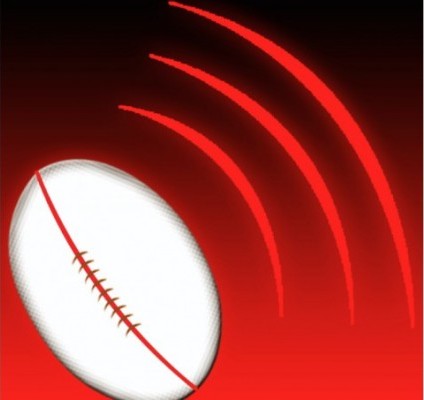Long Road for St. John's, Dartmouth Grad to Eagles
Long Road for St. John's, Dartmouth Grad to Eagles
It seems like it has taken a little too long for Nate Brakeley to get here, but maybe that’s just the way it is.
The 6-5 lock/flanker seems to have all the physical tools and intelligence to make it as an international rugby player, but at 26 he finally gets his shot. A standout for St. John’s Prep in Massachusetts, Brakeley was an All American at Dartmouth where, despite his size and what appeared to be a slow gait, he helped them win two CRC 7s invitationals. Then Brakeley went on to study at Cambridge University, where he earned a Light Blue and played in the famed Varsity Match, moving to New York to work and play for NYAC.
That is sort of where the story hits a bump, as many rugby players find that work and being an international rugby player can conflict. For Brakeley, he knew there were others pushing for a spot in the USA second row over the last couple of years. He wanted to push for a spot, but his job made it difficult.
This winter, he was asked if he was available for the Eagles, but at short notice had to decline. But then, when Matt Trouville was injured, he was asked again, and things at work had shifted around enough to allow him two weeks to play.
He embraced those two weeks, adding size and height to the USA pack, and starting two games at flanker.
“I was surprised to be starting at flanker,” Brakeley told Goff Rugby Report. “That was the first time I’ve played flanker since my freshman year at Dartmouth. Mitch and the coaches seemed to think I was a good fit there, and I had a lot of fun getting around the pitch more.”
In international rugby, loose forwards are usually bigger than they are in college or club rugby, and Brakeley proved that he can cover the position.
“Speed and agility are two facets of my game that still need a lot of work to get to an international standard, especially if I’m going to be playing flanker going forward,” said Brakeley. “My fitness is generally good so I can get around the pitch fine, but in line break situations, I still find myself a step or two behind the play. I wanted to prove that I could play at the international level, mostly to myself, but of course also to the rest of the coaching staff. Given that I only had two weeks on the tour, it was important that I showed that I was worth their investment going forward.”
The two games Brakeley played in were very different, in that the Canada game was tense throughout, while the Chile game was a 64-0 blowout.
“Rugby being what it is, it’s very rare that a game is actually won before the final whistle,” said Brakeley about the Canada game. “Especially given our youth, I don’t think there was anyone who was letting off the gas until it was over. However, our confidence definitely grew in the second half as we started having great results from the maul and Todd [Clever] got his hat trick.”
Chile, meanwhile, was a different animal.
“Chile was very strong in loose play and very good over the ball - both traits that can hurt you if you stray from playing cohesive team rugby,” said the former All American. “Thankfully we survived a couple of instances of us playing into their hand, and were able to regain our solid footing. Personally I was most pleased with our ability to dominate the lineouts - we’d worked hard on that during the week and watched a lot of film, so it was nice to see it pay off.”
Back in New York and back at work, Brakeley is still a rugby player at heart, and now has the taste of playing for his country, he wants more.
“I continue to play rugby because there is no equal experience I’ve found in terms of building bonds and personal identity,” he said. “The sport has also afforded me some unbelievable experiences along the way, playing around the world and with some extraordinary people. At two caps I’ve hardly arrived, and so there is plenty to continue to work toward.”












